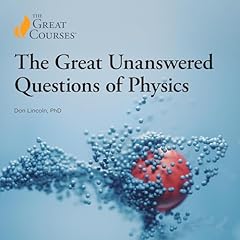
Through Two Doors at Once
The Elegant Experiment That Captures the Enigma of Our Quantum Reality
No se pudo agregar al carrito
Solo puedes tener X títulos en el carrito para realizar el pago.
Add to Cart failed.
Por favor prueba de nuevo más tarde
Error al Agregar a Lista de Deseos.
Por favor prueba de nuevo más tarde
Error al eliminar de la lista de deseos.
Por favor prueba de nuevo más tarde
Error al añadir a tu biblioteca
Por favor intenta de nuevo
Error al seguir el podcast
Intenta nuevamente
Error al dejar de seguir el podcast
Intenta nuevamente
 Exclusivo para miembros Prime: ¿Nuevo en Audible? Obtén 2 audiolibros gratis con tu prueba.
Exclusivo para miembros Prime: ¿Nuevo en Audible? Obtén 2 audiolibros gratis con tu prueba.
Elige 1 audiolibro al mes de nuestra inigualable colección.
Acceso ilimitado a nuestro catálogo de más de 150,000 audiolibros y podcasts.
Accede a ofertas y descuentos exclusivos.
Premium Plus se renueva automáticamente por $14.95 al mes después de 30 días. Cancela en cualquier momento.
Compra ahora por $15.75
-
Narrado por:
-
René Ruiz
One of Forbes's 2018 Best Books About Astronomy, Physics and Mathematics
One of Kirkus's Best Books of 2018
The intellectual adventure story of the "double-slit" experiment, showing how a sunbeam split into two paths first challenged our understanding of light and then the nature of reality itself--and continues to almost 200 years later.
Many of science's greatest minds have grappled with the simple yet elusive "double-slit" experiment. Thomas Young devised it in the early 1800s to show that light behaves like a wave, and in doing so opposed Isaac Newton. Nearly a century later, Albert Einstein showed that light comes in quanta, or particles, and the experiment became key to a fierce debate between Einstein and Niels Bohr over the nature of reality. Richard Feynman held that the double slit embodies the central mystery of the quantum world. Decade after decade, hypothesis after hypothesis, scientists have returned to this ingenious experiment to help them answer deeper and deeper questions about the fabric of the universe.
How can a single particle behave both like a particle and a wave? Does a particle exist before we look at it, or does the very act of looking create reality? Are there hidden aspects to reality missing from the orthodox view of quantum physics? Is there a place where the quantum world ends and the familiar classical world of our daily lives begins, and if so, can we find it? And if there's no such place, then does the universe split into two each time a particle goes through the double slit?
With his extraordinarily gifted eloquence, Anil Ananthaswamy travels around the world and through history, down to the smallest scales of physical reality we have yet fathomed. Through Two Doors at Once is the most fantastic voyage you can take.
Los oyentes también disfrutaron:




















Las personas que vieron esto también vieron:














With as much of the universe's energy and matter not observable, it seems Einstein had a point in suggesting quantum mechanics would be drawn back into a "cause and effect" world. As recent as this week, the activity of muons in dark energy suggests there is more to the story of the predictability of life.
LIFE'S MEANING
Se ha producido un error. Vuelve a intentarlo dentro de unos minutos.
Great history
Se ha producido un error. Vuelve a intentarlo dentro de unos minutos.
At the end I'm left even more convinced that this is the "holiest" holy grail in all of science(even more so than any t.o.e)...the bedrock principle of the universe, and the ultimate nut to crack.
Worth more than one listen!
Se ha producido un error. Vuelve a intentarlo dentro de unos minutos.
The author refers to the same basic experimental setup for each new story (interference of wave-particle paths), and makes it into somewhat of a joke for repeating the same thing for each new story; but really this book has much more breadth than its title suggests. He gives great explanations for just about all types of interference relevant to quantum mechanics, and weaves into each story a lot of great background info on the philosophy of the physics and the physicists involved.
I was literally in tears by the end of this audible (not literally), that's how good it was!
Great explanations, far exceeded my expectations..
Se ha producido un error. Vuelve a intentarlo dentro de unos minutos.
Wonderful performance
Se ha producido un error. Vuelve a intentarlo dentro de unos minutos.


